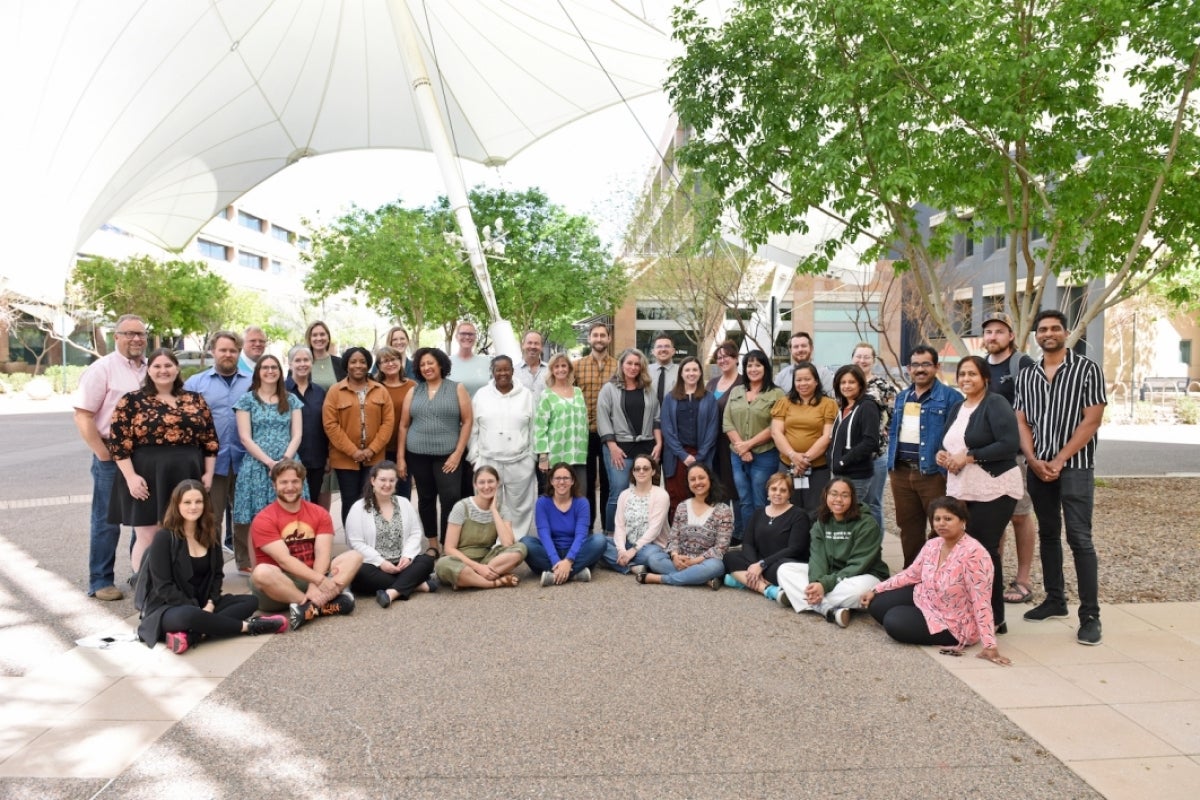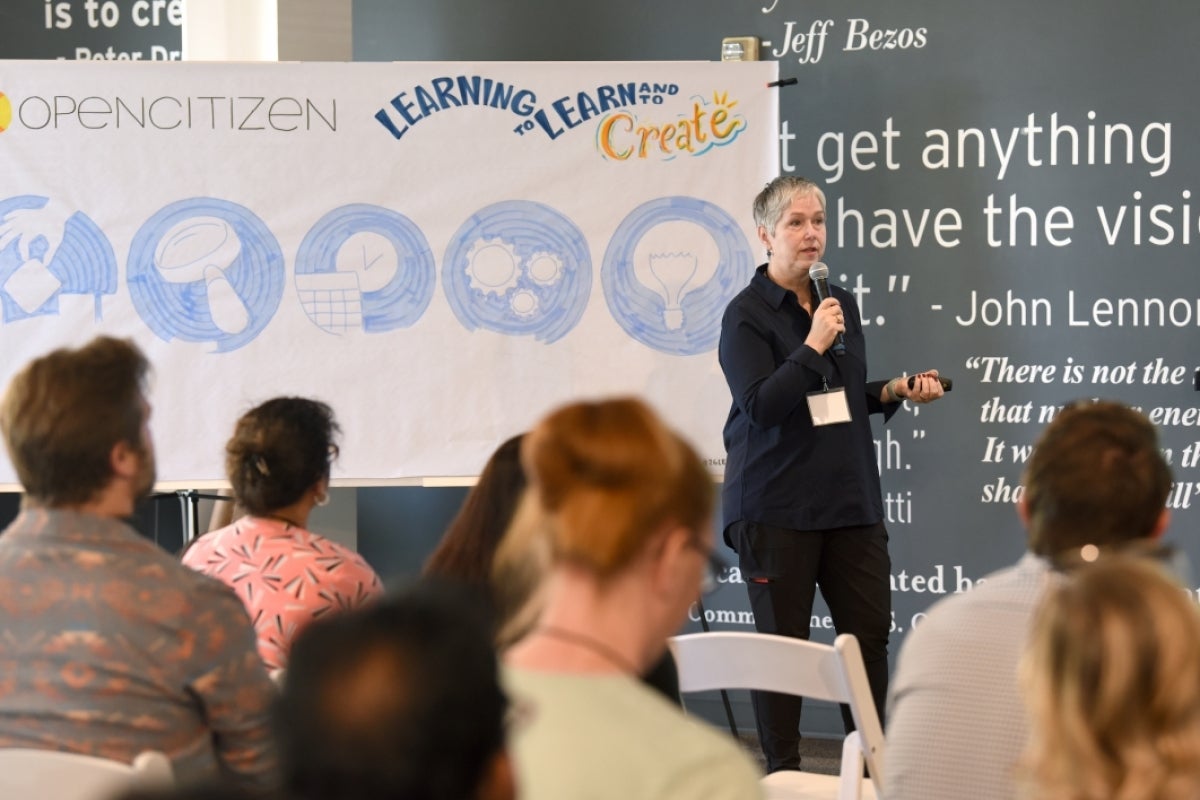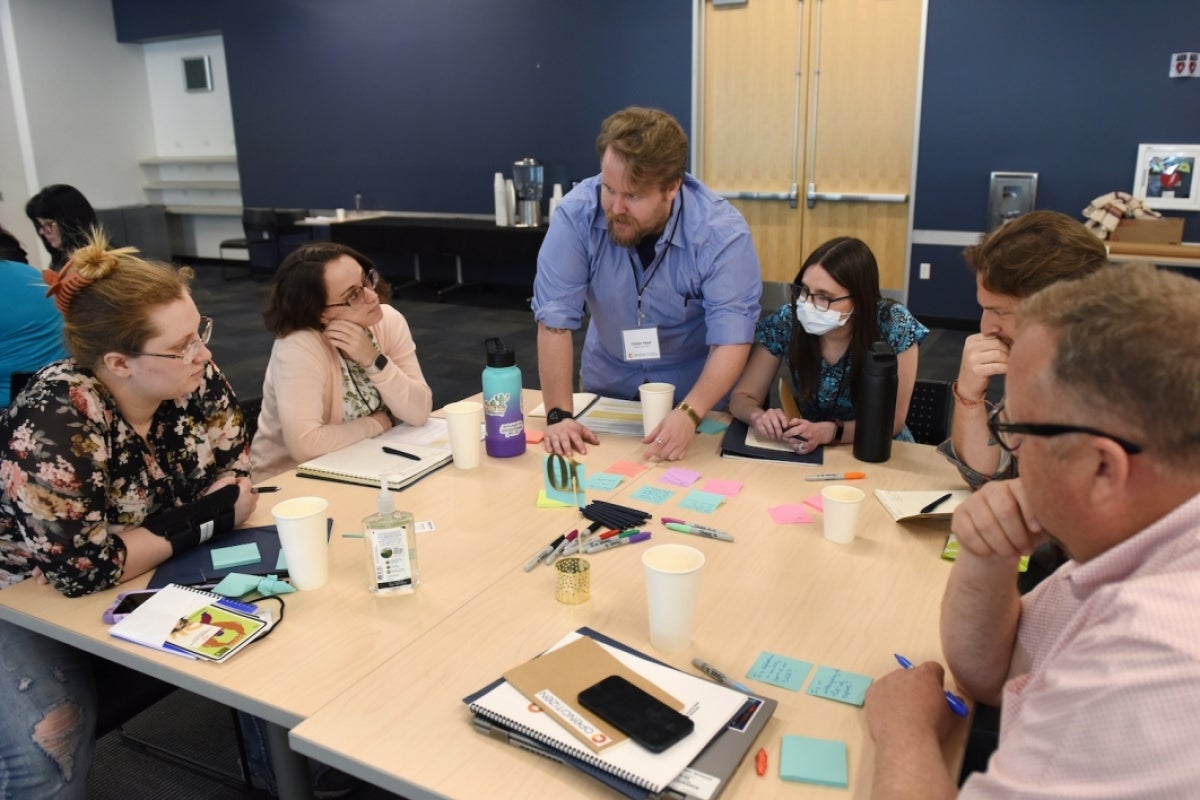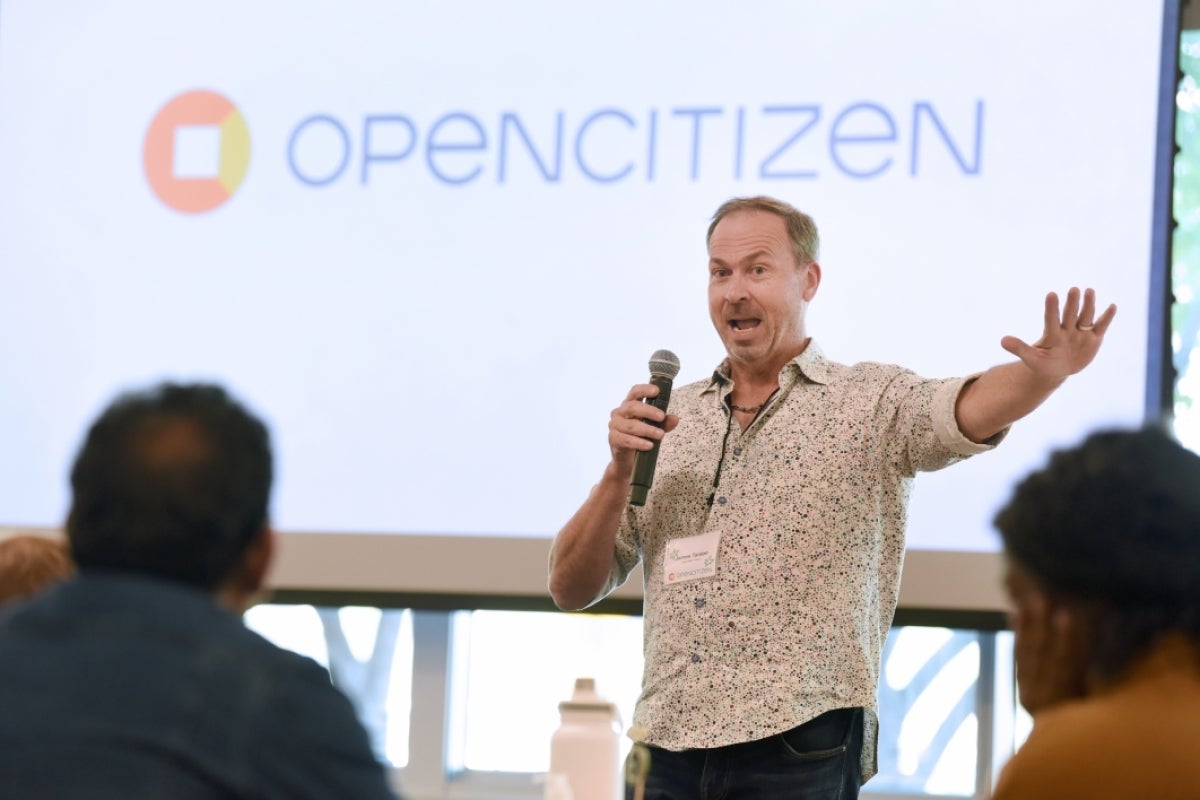OpenCitizen project holds 2nd annual gathering for education changemakers

A group of educators brainstorms at the OpenCitizen Gathering.
More than 40 educators came together for the second OpenCitizen gathering March 17–19 to be inspired, ask big questions about education and share their learnings on facilitating inquiry learning in the classroom.
The event, held at SkySong, the ASU Scottsdale Innovation Center, was co-hosted by Arizona State University's Interplanetary Initiative, ASU's Learning Enterprise and Beagle Learning.
Arizona elementary, middle and high school teachers and school leaders participated in a weekend of professional development sessions designed to introduce open-inquiry processes, learner-centered pedagogies and strategies for how teams of students can move from inquiry to action.
“Our goal for this gathering is to share our common passion and practical skills for student-centered inquiry learning, so we can all continue to bring these techniques to our classrooms. We also want to prepare this fantastic group of educators to pilot OpenCitizen in their classrooms or after-school programs this fall,” said Lindy Elkins-Tanton, vice president of the Interplanetary Initiative.
Attendees participated in a series of highly interactive workshops, gaining skills in teaching and facilitating inquiry-based learning through the OpenCitizen process, and leaving with a plan for bringing this process to their school or classroom.
OpenCitizen uses an inquiry-based learning and problem-solving approach that follows five key elements:
1. Problem identification
2. Research
3. Project planning.
4. Project operations
5. Learnings and reflections.
During items one through three, teams use an inquiry process to find background knowledge about their project, identify unknowns and suggest hypotheses. They set an overarching goal question, then follow a cycle of asking their own natural next questions, researching answers and sharing learnings with their team. This inquiry cycle makes learning flexible and helps learners gather project-critical information while focusing on what matters most to them.
“We learned about inquiry, and how to give students agency and help them become more excited about learning and ultimately go out and be able to be individuals that are problem solvers and contributors to the community, who feel connected not only to the important issues in the world but also to each other,” said Tawn Hauptli, from Mesa Community College. “I’m really looking forward to this process taking over education. I think more people need to be aware of it, more people need to practice it.”
Many innovative teachers who have been using inquiry learning methods for years were able to share their stories.
“Being in an alternative school, it’s pretty obvious that school hasn’t worked out as well for them as other students. Trying to find creative solutions to reach them has always been a goal of ours, and inquiry helps us do that and reach them where they’re at,” said Robert Sehl, from Riverview High School.
Rachel Thune Real of Mountain View High School shared her experience in using the full OpenCitizen process in 2022 and 2023. Over nine weeks, her students identified a community challenge they were passionate about, then followed a cycle of asking their own natural next questions, researching answers, and sharing learnings with their team. They then took action on their new knowledge by following a project plan that they created as a team. Students wrapped up their projects by presenting their exciting learnings to parents in an after-school showcase. Some of the questions her students asked were “How can high school students help improve literacy rates for elementary school students?” and “How can environmental changes in classrooms benefit students' mental health?”
“Inquiry-based learning enables students to exercise agency over their learning conditions, which in turn empowers them to become collaborators, communicators, creators, and change-makers right now,” Thune Real said.
All attendees are eligible to apply for pilot funding to support implementation of OpenCitizen programs in their fall 2023 classrooms. High school students that submit complete deliverables through the full OpenCitizen process can receive ASU college credit for their work.
“This is an exciting opportunity to offer credit to students for practicing life skills that will benefit them in college and career,” said Carolyn Bickers, co-founder at Beagle Learning.
More Science and technology

Science meets play: ASU researcher makes developmental science hands-on for families
On a Friday morning at the Edna Vihel Arts Center in Tempe, toddlers dip paint brushes into bright colors, decorating paper…

ASU water polo player defends the goal — and our data
Marie Rudasics is the last line of defense.Six players advance across the pool with a single objective in mind: making sure that…

Diagnosing data corruption
You are in your doctor’s office for your annual physical and you notice the change. This year, your doctor no longer has your…





